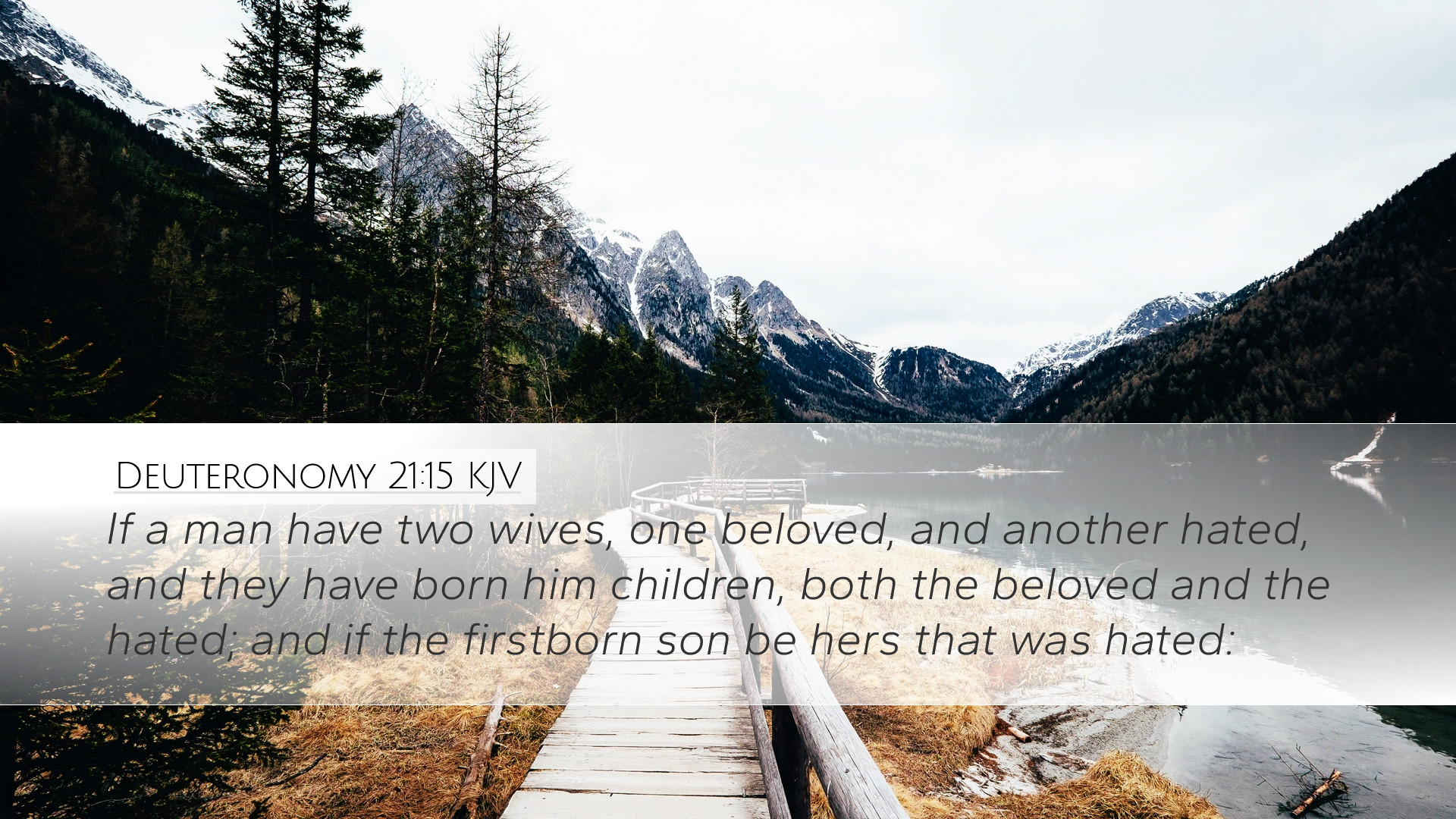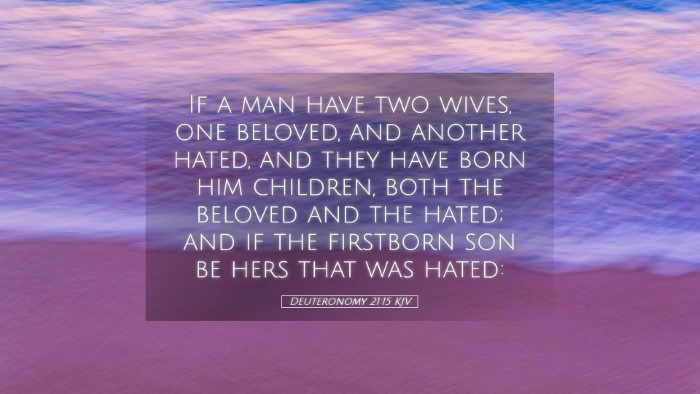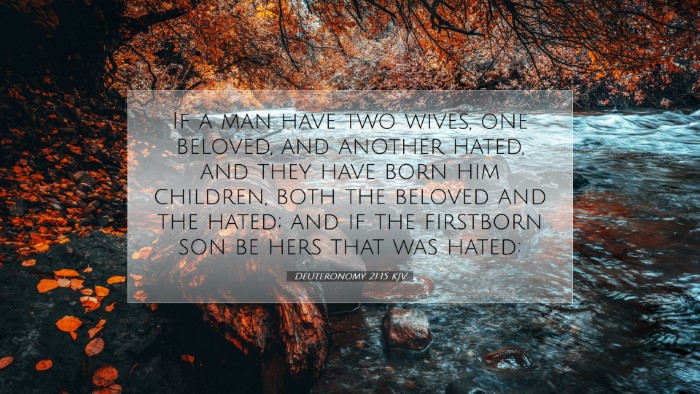Commentary on Deuteronomy 21:15
Deuteronomy 21:15 states:
"If a man have two wives, one beloved, and another hated, and they have born him children, both the beloved and the hated; and if the firstborn son be hers that was hated."
General Overview
This verse addresses the complex social and legal realities of ancient Israel regarding family dynamics, particularly concerning polygamy and the inheritance rights of children. It appears in a section of Deuteronomy that discusses various laws concerning family, inheritance, and the conduct of justice.
Matthew Henry's Commentary
Matthew Henry observes that this verse brings to light the tensions that can arise within a polygamous family structure. He points out the following:
- Two Wives: The presence of two wives indicates a potential for relational strife, particularly when one is favored over the other.
- Love and Hatred: Henry highlights the deep emotional complexity in the terms "beloved" and "hated," noting that favoritism can lead to familial discord.
- Firstborn Rights: The firstborn son’s rights are emphasized, reminding us of the critical nature of inheritance in the culture of Israel.
According to Henry, this acknowledgment of human emotions and social order underscores the need for ethical guidelines to navigate familial relationships effectively.
Albert Barnes' Commentary
Albert Barnes delves deeper into the implications of the text:
- Judicial Regulations: Barnes argues that these regulations reflect God's concern for justice and equity even in difficult domestic situations.
- Cultural Context: He emphasizes the historical context, suggesting that polygamy was socially accepted but still required guidelines to ensure fairness.
- Parent-Child Relationships: The emotional bonds between parents and children play a crucial role in the inheritance laws illustrated in this text.
Barnes concludes that the divine law accommodates human nature while calling for a higher standard of conduct, especially in familial relationships.
Adam Clarke's Commentary
Adam Clarke provides a thorough exegesis of the text, adding several important points:
- Interpretation of 'Hatred': Clarke suggests that the term "hated" may not imply outright animosity but could denote a lesser degree of affection compared to the beloved wife.
- Theological Reflection: He reflects on the nature of God’s justice and how it applies to human relations, positing that God's commands reflect a desire for harmony and fairness.
- Precedence of the Firstborn: Clarke highlights the significance of the firstborn in biblical culture, linking inheritance rights to broader themes of legacy and identity within the community.
Clarke’s insights encourage believers to grapple with the moral nuances present in the scripture and apply them to contemporary familial and societal issues.
Theological Implications
Overall, the collective wisdom from these commentaries brings forth significant theological implications:
- God's Concern for Human Relationships: The scripture highlights God’s intention to regulate human relationships with justice and compassion.
- Complexity of Family Dynamics: The varying emotional statuses within a household exemplify the complexities of human relationships that God seeks to address through the law.
- Inheritance as Identity: The laws pertaining to inheritance and familial authority indicate the importance of legacy and the continuation of the family line in the biblical worldview.
Practical Application
For pastors, students, and theologians, several practical applications can be drawn from this verse:
- Understanding Relationships: This verse serves as a reminder to consider the dynamics within families and the importance of fairness and love in relationships.
- Application of Justice: Today's leaders can draw lessons on the importance of establishing just practices within communities that reflect God’s intentions for fairness and equity.
- Emotional Awareness: Awareness of emotional complexity in familial structures encourages deeper pastoral care and guidance for those facing relational struggles.
Conclusion
The complexities presented in Deuteronomy 21:15 invite readers to engage with the text not merely as ancient law but as a reflection of divine concern for humanity. The insights provided by Matthew Henry, Albert Barnes, and Adam Clarke encourage a nuanced approach to interpreting scripture, marrying ancient wisdom with contemporary relevance.


